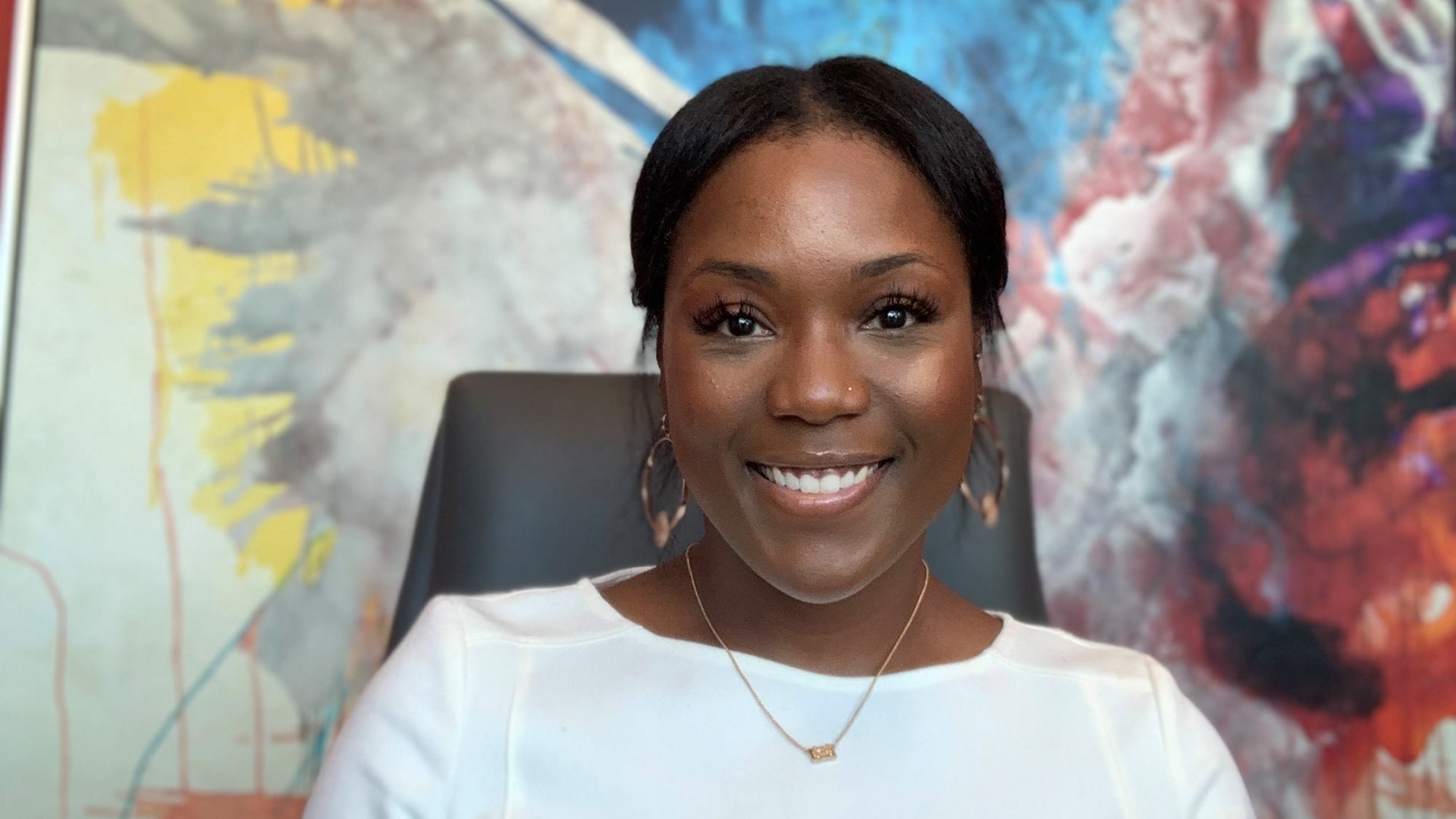View Larger Image

Shaneika Chambers
Chambers Wins Irby Award for Early Career Faculty
| Sometimes doing your job well and with passion makes a big difference. For Shaneika Chambers, MHA, MLS, it is also what earned her the Edith Irby Jones Award for Early Career Faculty.
Chambers first worked in the UAMS clinical lab for three years. She has been an instructor since July 2021 in the Department of Medical Laboratory Sciences in the College of Health Professions and plays a central role in recruiting new students to the department.
“I was elated when I heard my name called for the Irby Award and excited for the program to get this kind of exposure,” Chambers said. “When I started my career in health care, I think there was a lot of new attention being given to diversity, equity and inclusion. It’s coming around. We are getting there, and I think UAMS is doing an awesome job, and I am not just saying that because I work here.”
Presented by the UAMS Division of Diversity, Equity and Inclusion in seven awards categories, the Edith Irby Jones awards honor students and employees who demonstrate commitment and leadership in fostering diversity and inclusion.
“The things she was acknowledged for is what our program is known for, which is giving students from all over the country a chance to earn their Bachelor Degree,” Nathan Johnson, Ph.D., said. Johnson is chair, program director and a professor of the Department of Medical Laboratory Sciences.
Of the 850 students in the department, 205 are either Black, Asian or Hispanic, Johnson said. Students come from 48 states, most of them attending classes online while also working in labs. Many have associate’s degrees in medical laboratory sciences and are interested in earning bachelor’s degrees in the field to qualify for higher level jobs.
Even though recruitment is a big part of what Chambers does all year and inclusion is deeply integrated into how the department operates, Johnson gives Chambers much of the credit for the department’s success in attracting and retaining a diverse student body.
“People like her, and they are comfortable with her,” Johnson said. “Not just underrepresented minority students but anybody. She does a fantastic job of making them feel welcome. They become part of the family, and she is well loved by all the students.”
He also praised Chambers’ work ethic and her openness to working weekends and nights. Some students are in the military and in completely different time zones. Others take classes in the evening, so their questions come in at odd hours, but Chambers is often there to answer them shortly after they arrive in her email inbox.
Nationwide, hospitals and clinics have many unfilled positions in their labs. In rural areas with small hospitals, the shortage is especially critical. Being able to offer online classes to people in rural areas is key to filling that gap, Johnson said.
Chambers said she tries hard to recruit students from rural areas and also thinks it is important to have a work force in medical labs that represents the patient populations it serves.
“Once they have that bachelor’s degree, they not only have more knowledge, but they are ready to step into leadership roles in those labs,” Chambers said. “Having underrepresented people in leadership roles is important so leadership can be responsive to them. Leaders need to have that viewpoint to draw input from.”
Although she has long valued the importance of listening to a diversity of viewpoints, her awareness of that importance was raised even higher by her participation in DDEI’s Seeking Education in Equity and Diversity (SEED) program. Program participants in a seminar format explore their own understanding of and education in relation to race, gender, socioeconomic status, religion, sexual identity, disabilities and age.
Much of the discussion in SEED in which Chambers took part was about how as individuals and professionals they could move health care forward to be more representative of the larger community. Receiving the Irby Award was recognition of her success in helping to do that.
“The award motivates me to continue on in our efforts,” she said. “It’s great to be recognized for it. It’s something we have been doing and will keep doing anyway. Before the award, I had not heard of it. I didn’t do it for the award. Now that I am recognized for it, I want to keep it going.”